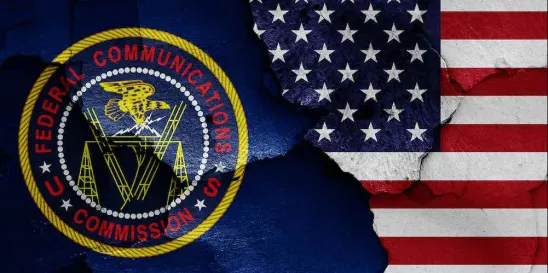FCC to Consider Rules to Strengthen Revocation Rights
On January 25, 2024, the Federal Communications Commission (“Commission”) released a draft Report and Order and Further Notice of Proposed Rulemaking (“Further Notice”) for consideration at its February 15, 2024, Open Meeting. If adopted, the Report and Order would codify the Commission’s 2015 ruling that under the Telephone Consumer Protection Act (TCPA), consumers may revoke consent by any reasonable means and clarify the meaning of “reasonable” in this context. The Report and Order would also require that robocallers and robotexters honor do-not-call requests and consent revocation requests as soon as practicable but no longer than 10 days from receipt. Finally, the Report and Order would codify the Commission’s 2012 ruling that following a consumer's revocation of consent to text, a one-time confirmation text message confirming that request does not violate the TCPA if it merely confirms the request.
In an associated Further Notice, the Commission would propose to find that the TCPA applies to robocalls and robotexts from wireless providers that call or text their own subscribers. Accordingly, it would also propose to allow subscribers to revoke consent to those texts or calls from their carrier pursuant to the rules the Commission would adopt in the Report and Order.
FCC Chairwoman Proposes TCPA Interpretation to Cover AI-Generated Voices
On January 31, 2024, Commission Chairwoman Rosenworcel issued a news release that follows up on the Commission’s October 2023 Notice of inquiry on the use of artificial intelligence in robocalls. The News Release says that the Chairwoman will propose that calls made with AI-generated voices are “artificial” under the TCPA, which prohibits making calls with artificial or pre-recorded voices without consent. That would make consent required for all calls, regardless of whether they are made to a landline or cell phone, with AI-generated voices. We expect that the draft decision will be circulated to other FCC Commissioners for a vote (rather than being voted at a monthly Commission meeting).
FCC Enforcement Bureau Takes Steps to Remove Voice Service Provider from the Robocall Mitigation Database
On January 10, 2024, the Commission’s Enforcement Bureau (“Bureau”) issued an Order to voice service provider BPO Innovate to show cause as to why its certification and filings should not be removed from the Robocall Mitigation Database (RMD). If that certification and filings are removed, other carriers would be prohibited from handling calls from BPO Innovate. Under Commission rules, the Bureau may remove a voice service provider from the RMD if it finds that its filings are “deficient in some way.”
The Bureau’s January 10 Order follows from BPO Innovate’s failure to adequately respond to a Bureau letter notifying the company of its RMD deficiencies. According to the Order, the Bureau determined that BPO Innovate had failed to respond to traceback requests from the Industry Traceback Group, which contravened BPO Innovate’s RMD certification that, in part, committed the company to respond to such requests in a timely manner. The Bureau further found that BPO Innovate’s robocall mitigation plan did not describe the specific reasonable steps the company has taken to avoid originating illegal robocall traffic because the document purporting to be its robocall mitigation plan was in fact, a letter from the Internal Revenue Service notifying the company it had been assigned an Employer Identification Number.
While the Bureau has not taken final action on whether to remove BPO Innovate from the RMD, this Order is notable in that it is the Bureau’s first use of the expedited removal procedures adopted in the Sixth Call Authentication Report and Order and only became effective in August 2023. These procedures allow the Bureau to quickly remove a provider’s “facially deficient” RMD filings. Failure to file a robocall mitigation plan that includes the specific steps a provider is taking to mitigate illegal robocalls is, as described in the Sixth Call Authentication Report and Order, a quintessential example of a “facially deficient filing.” Further, the Commission has determined that where a provider’s filing is facially deficient, it has “willfully” violated the RMD filing obligation.
Commission Sets Compliance Deadlines for New RMD Filing Obligations
As we reported in March 2023, the Commission adopted its Sixth Call Authentication Report and Order, extending a number of new RMD filing obligations to all providers.On January 25, the Commission issued a Public Notice announcing the compliance deadlines associated with these filing obligations.
By February 26, 2024, all providers (voice service, intermediate, and gateway) must submit a robocall mitigation plan to the RMD, regardless of whether they have fully implemented STIR/SHAKEN. This is a change from the previous rule, which only required certain providers to submit a robocall mitigation plan when they had not fully implemented STIR/SHAKEN. Likewise, all providers must file certifications in the RMD indicating whether the provider has fully, partially, or not implemented STIR/SHAKEN on the IP portion of its network. The Sixth Call Authentication Report and Order also required all filers to provide additional information with their submissions, including a detailed description of how they will comply with know-your-upstream provider requirements. RMD Certifications must also include a statement of the provider’s commitment to respond to all traceback requests within 24 hours (this obligation was originally limited to gateway providers but now applies to all providers).
The Sixth Call Authentication Report and Order also required that intermediate and voice service providers may accept calls directly from domestic voice service providers, foreign providers, non-gateway intermediate providers, and gateway providers only if those service providers' filings appear in the RMD in accordance with the Commission’s rules, including the new rules outlined above. Voice service and intermediate providers must comply with this prohibition beginning on May 28, 2024.
Importantly, providers with existing filings in the RMD will also be required to update their submissions and certifications by resubmitting their filings by February 26, 2024.
Compliance and Comment Deadlines Set for Robotexting Rules
In December 2023, the Commission adopted a Second Report and Order and Second Further Notice of Proposed Rulemaking imposing new consent obligations on lead generators, requiring terminating voice service providers to block text messages upon notification from the Commission’s Enforcement Bureau, and clarifying the National Do-Not-Call (DNC) protections apply to text messages.
On January 26, the Second Report and Order was published in the Federal Register, setting the compliance deadlines for the above obligations. First, the one-to-one consent rule — the requirement that telemarketers who use texting must obtain consumers’ prior express written consent to be contacted by each individual seller on a comparison-shopping website — will be effective beginning on January 27, 2025. Second, the requirement for terminating providers to block text messages upon Enforcement Bureau notification will be effective on July 24, 2024. And third, the clarification that the National DNC protections apply to text messages will be effective March 26, 2024.
Likewise, the Second Further Notice of Proposed Rulemaking (“Second Further Notice”) was also published in the Federal Register, setting the comment and reply comment deadlines. The Second Further Notice seeks comment on proposals to expand the mandatory blocking of text messages upon Commission notification to originating providers and seeks additional comment on the implementation of STIR/SHAKEN or other authentication technology for texting. Comments and reply comments on the Second Further Notice will be due February 26 and March 11, 2024, respectively.
Legislative Update
On January 29, 2024, Congressman Frank Pallone (D-NJ) introduced the Do Not Disturb Act, which is intended to provide consumers more protection against robocalls. To date, the bill only has Democratic co-sponsors and has not yet been referred to a House committee.
The bill would close the loophole created by the Supreme Court in the Facebook case, in which the Court held that an automatic telephone dialing system must feature a random or sequential number generator. In addition, the bill would eliminate the definition of an automatic dialing system and instead define a robocall as a call or text from equipment that stores telephone numbers (although the definition would exclude calls made with “substantial human intervention”). Other provisions of the bill would (i) require a person using artificial intelligence to disclose that fact at the beginning of a call; (ii) double the maximum forfeiture penalty or criminal fine for violations of the TCPA where AI is used to impersonate an individual or entity; (iii) directs the FCC to take other actions intended to limit illegal robocalls; (iv) extends the authority of the Federal Trade Commission (FTC) to include text message; and (v) directs the FTC to take follow up actions to better protect consumers from harmful robocalls.





 />i
/>i

